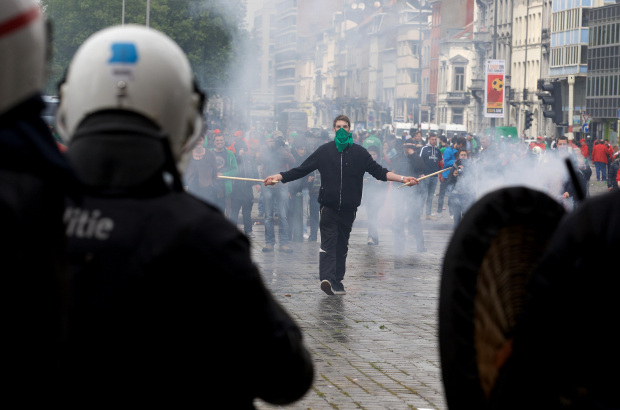- Daily & Weekly newsletters
- Buy & download The Bulletin
- Comment on our articles
2016 sees highest number of strikes in two decades
The year 2016 is expected to finish with one of the highest number of strikes in two decades, according to figures from the national social security office ONSS. According to the latest figures for the second quarter, the period between April and June accounted for 247,300 strike days, the highest level in 25 years.
The figures account for how many working days were lost to strikes, and are therefore influenced by the number of workers taking part and the number of days a strike lasts. One strike day counts as one employee refusing to work for a day.
The year 2014, the first of the current federal government, ended with 760,300 strike days, the highest in 25 years. It was also the first year in a quarter century that socialist parties did not form part of the ruling coalition.
The next year saw a calming of social unrest, followed by an increase in the number protests in 2016. In the second quarter, there were a number of rail strikes, as well as a significant protest by prison guard unions. On 24 May, 60,000 people took part in a national one-day strike against government policies, followed a week later by a strike by 10,000 civil servants and teachers.
“That strike explains the second quarter’s record levels,” said Kurt Vandaele, a researcher with the European trade union institute Etui. “The sectors where the most strikes took place between April and June were the metal industry, the transport sector and, with the prison guard strike, the government.”
Photo: Nicolas Maeterlinck/Belga









